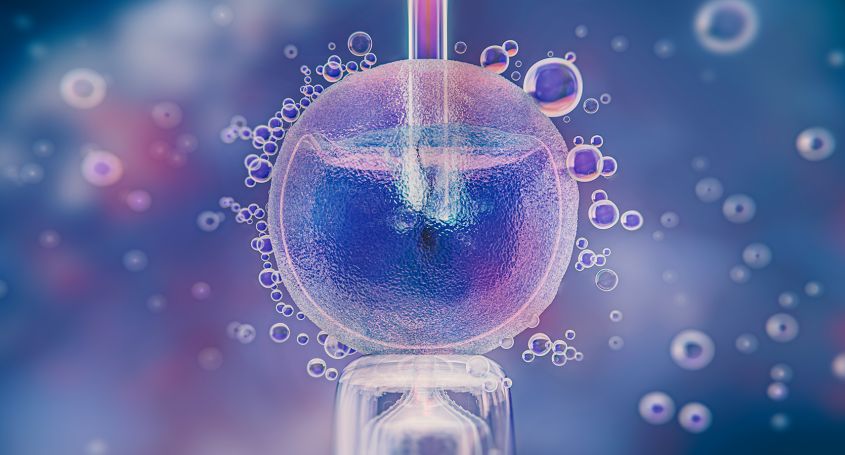What is ovulation and anovulation?
Usually during the menstrual cycle occurs the ovulation. This consists in the release of a mature egg that can be fertilized by a sperm to form an embryo.
Anovulation is the absence of this ovulation, that means, along the menstrual cycle the ovaries do not release eggs and fertilization can’t occur. This causes female infertility problems.
Pregnancy and breastfeeding are normal physiological situations where anovulation occurs naturally. For this reason, during this period the woman does not release eggs.
Why does it occur?
It is generally due to a hormonal imbalance that may be caused, among other reasons, by:
- Polycystic ovarian syndrome (PCOS)
- Stress
- Hyperprolactinemia
- Thyroid problems
- Alimentary disorders
- Excessive exercise
What are its most common symptoms?
The symptoms can vary in each woman, appearing:
- Amenorrhea or absence of menstruation
- Irregular Menstrual periods
- Periods with a shorter duration than usual
- Decrease of the premenstrual syndrome
This variability of symptoms makes it more difficult to detect in women who continue to have menstruation.
How is it diagnosed?
There are different methods for diagnosis:
- Blood tests that measure levels of progesterone. This hormone increases its release with ovulation.
- Pelvic exam and ultrasound.
Once the diagnosis is obtained, the doctor can carry out complementary tests to detect the causes that produce this anovulation.
Is there any treatment for anovulation?
Occasionally, stress control, diet changes, and physical exercise may be enough to restore ovulation. If there are hormonal changes, a treatment adapted to each particular situation will be received.
If the treatment fails to recover ovulation and a woman wants to become pregnant, there are other alternatives such as assisted reproduction. Currently there are different options that adapt to the particular needs of each person.
If you have any doubts, don't hesitate to ask us!















